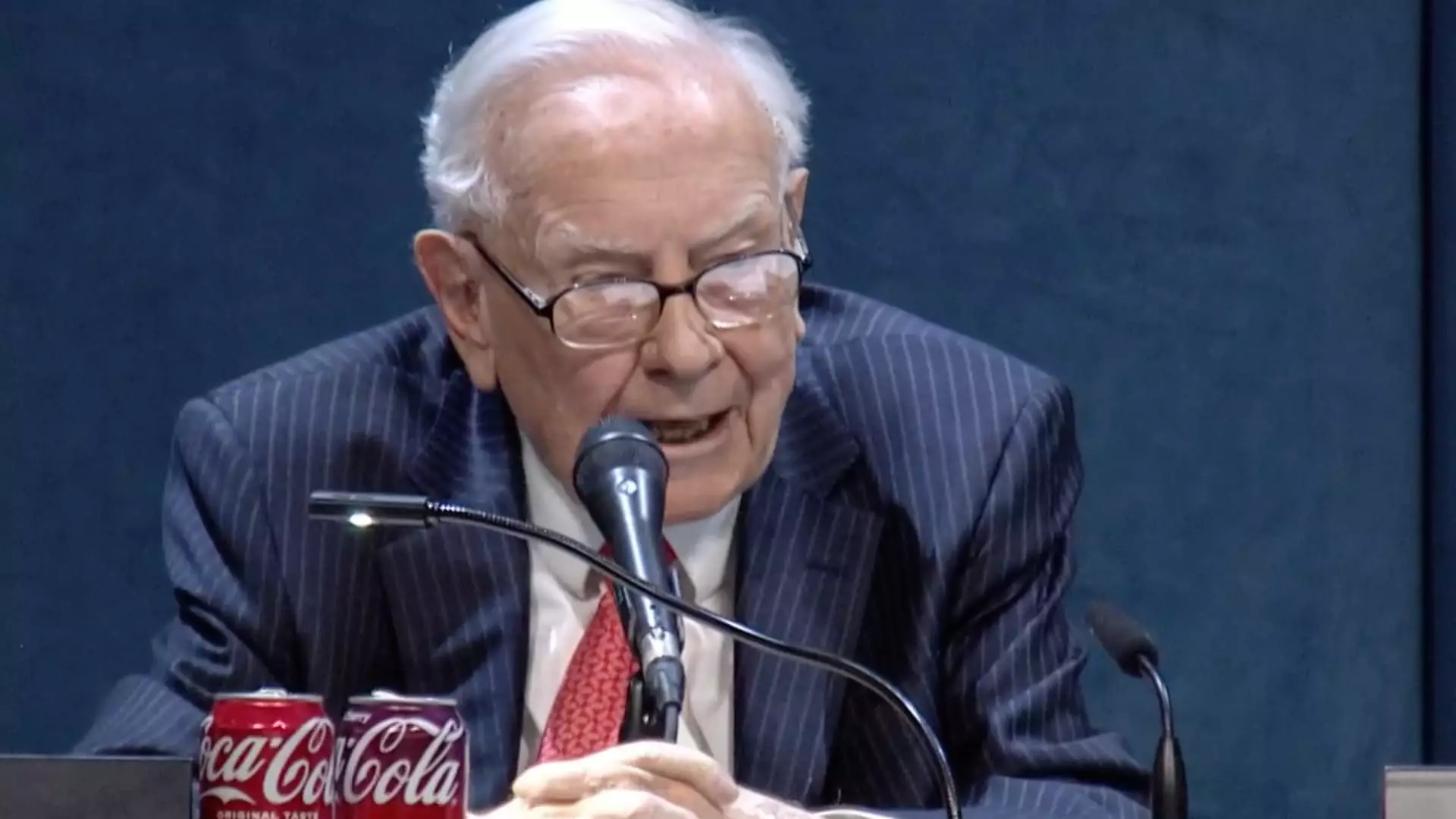Warren Buffett, renowned for his financial acumen and decades of experience in investing, has recently taken a strong stance against restrictive trade policies, particularly the punitive tariffs that have become synonymous with the Trump administration’s approach. While his critiques were made indirectly, it was clear he was referring to the administration’s hardline trade measures. He remarked that trade should operate as a bridge, not a battleground, warning that utilitarian perspectives on trade can lead to consequences that extend well beyond economic terms and into the fabric of international relationships.
The sentiment echoed by Buffett is both alarming and necessary to embrace in a time when isolationist and protectionist attitudes are on the rise. When tariffs are treated as a weapon against other nations, we risk dismantling the very framework that has historically supported prosperity and security for our own citizens. The notion that global prosperity can be a zero-sum game is a dangerous fallacy that can distort our understanding of international trade dynamics.
Historical Context: Learning from the Past
Reflecting on the United States’ ascent from modest beginnings to a dominant global economic force within just over two centuries, Buffett underscores the importance of trade in this trajectory. His comments serve as a reminder that the rise of American power wasn’t simply a product of domestic policies but was significantly bolstered by relationships forged through trade. Countries become economically and politically stronger not merely by boxing themselves in but by engaging in shared growth.
Historically, protectionist policies have often backfired. For instance, the Smoot-Hawley Tariff of 1930 exacerbated the Great Depression by reducing international trade flow and igniting retaliatory tariffs from other nations, spiraling the global economy into further turmoil. The echoes of that era are stark reminders of the risks of adopting an insular mindset when it comes to trade.
Complexity of Global Interdependencies
Buffett’s insights come at a time when uncertainty looms over the global economy, as variables such as tariffs, geopolitical instability, and market volatility intertwine to create a complex environment for investors. There is a palpable tension in the markets, evidenced by sudden fluctuations that are often reactions to news related to tariffs and international trade negotiations.
In a continually interconnected world, the assumption that the economic prowess of the United States stands independent from global interdependencies is misguided. The singular focus on domestic gain at the expense of international cooperation risks estranging our nation from allies and partners alike. As Buffett poignantly noted, moving forward in an increasingly globalized economy requires collaboration rather than contention.
The Illusion of Economic Security
Buffett highlights an ironic truth: while America may currently enjoy a robust economy, the illusory nature of this security through price protection can lead to long-term detriment. As tariffs rise, so too do prices on everyday goods for American consumers. The consequence is a circular trap whereby consumers pay the price for economic nationalism, effectively undermining the very economic self-sufficiency that such measures aim to achieve.
Buffett’s warning is underlined by a counterintuitive reality: that the prosperity of the rest of the world is inherently tied to our own economic fortunes. When surrounding nations flourish, they become valuable partners for trade, thus benefiting American businesses and bolstering economic growth domestically. As the oracle suggests, this symbiotic relationship demands that we dismantle barriers rather than erect them.
Investing in a Global Economy
As Berkshire Hathaway grapples with the fallout from increased tariffs, investment strategies must also adapt to this evolving landscape. Buffett’s historical approach to investing has emphasized value and thoughtful engagement with global market trends. A defensive position may offer short-term relief, but it is crucial not to lose sight of the long-term benefits of strategic investments rooted in international collaboration.
Navigating this intricate mix of domestic and foreign investment requires a re-evaluation of conventional strategies born out of outdated protectionist ideologies. It is essential for investors and leaders alike to adopt a center-right viewpoint that welcomes global partnerships while seeking to uplift both the American economy and its allies.
The heading toward trade as an adversarial engagement, as suggested by trite tariff policies, risks gnarling the very essence of capitalism that has benefitted so many. The outcome that Buffett forewarns goes beyond mere fiscal health—it encompasses our ability to compete on the world stage while fostering a sense of stability and security for generations to come.

